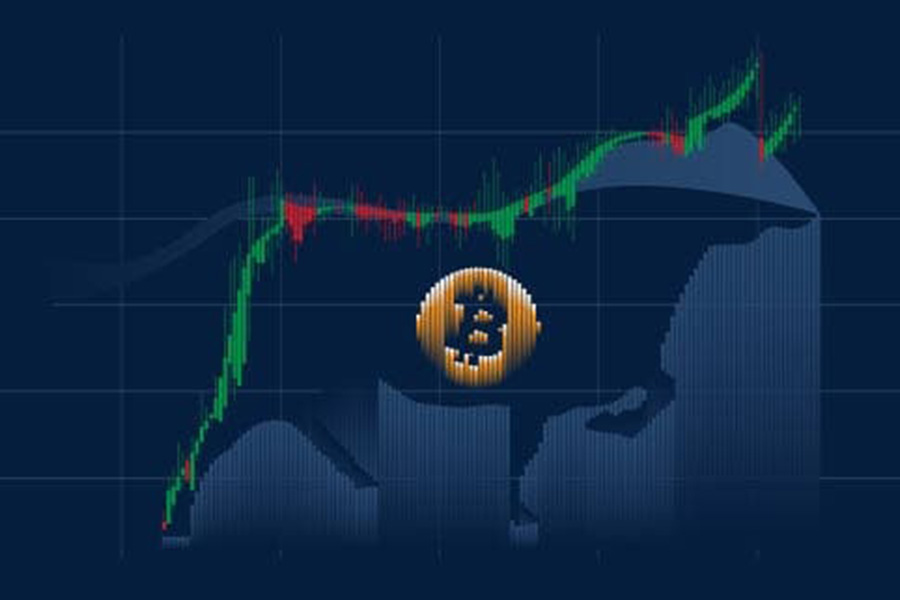
Interest rates are a fundamental aspect of any economy and have a significant impact on various financial instruments, including cryptocurrencies like Bitcoin. The relationship between interest rates and bitcoin price is complex and multifaceted, reflecting a range of economic, technological, and psychological factors. This article will explore how interest rates can influence the price of Bitcoin and the broader cryptocurrency market, examining the mechanisms at play and the implications for investors.
The Basics of Interest Rates and Their Influence
Interest rates are the cost of borrowing money or the return on savings and investments. They are set by central banks and are a key tool for managing inflation and economic growth. When interest rates are low, borrowing becomes more attractive, which can stimulate economic activity. Conversely, high interest rates can deter borrowing and slow down the economy. The impact of interest rates on Bitcoin price is not as straightforward as it is with traditional assets, but there are several ways in which they can influence it.
Low Interest Rates and Bitcoin Price
During periods of low interest rates, investors often seek alternative investments to maintain or increase their returns. Bitcoin, with its potential for high returns and relatively low correlation with traditional assets, can be an attractive option. When interest rates are low, the opportunity cost of holding Bitcoin decreases, making it more appealing as a store of value or an investment. This increased demand can drive up the Bitcoin price. Additionally, low interest rates can lead to inflation, which may prompt investors to seek hedges against currency devaluation, further bolstering demand for Bitcoin.
High Interest Rates and Bitcoin Price
On the other hand, when interest rates are high, the opportunity cost of holding Bitcoin increases. Investors may prefer to put their money into traditional assets that offer higher yields, leading to a decrease in demand for Bitcoin and potentially a decline in its price. High interest rates can also signal a strong economy, which might reduce the appeal of Bitcoin as a hedge against economic uncertainty. Furthermore, high interest rates can lead to tighter monetary policies, which can affect the liquidity in the market and, by extension, the Bitcoin price.
The Role of Inflation in Interest Rates and Bitcoin Price
Inflation plays a crucial role in the relationship between interest rates and Bitcoin price. Central banks often adjust interest rates in response to inflationary pressures. If inflation is high, central banks may raise interest rates to curb it, which, as discussed, can negatively impact Bitcoin price. However, if inflation is low or negative, central banks may lower interest rates or even implement unconventional monetary policies like quantitative easing, which can increase the money supply and potentially lead to a rise in Bitcoin price as investors seek alternative stores of value.
Psychological Factors and Market Sentiment
The psychological factors and market sentiment also play a significant role in how interest rates affect Bitcoin price. Investors’ perceptions of the economic environment and the future direction of interest rates can influence their investment decisions. For example, if investors anticipate that interest rates will rise, they may sell off Bitcoin in anticipation, causing a drop in price. Conversely, if they expect interest rates to remain low or decrease, they may be more inclined to hold or buy Bitcoin, driving up the price.
Technological and Regulatory Developments
While economic factors are important, the technological and regulatory landscape also influences the Bitcoin price. Developments in blockchain technology, increased institutional adoption, and changes in regulatory frameworks can all impact the demand for Bitcoin and its price, sometimes overriding the effects of interest rates. For instance, if a major financial institution announces plans to invest in Bitcoin, it can significantly boost the price, regardless of current interest rates. Similarly, regulatory clarity or crackdowns can have a substantial impact on market sentiment and the Bitcoin price.
Conclusion
The relationship between interest rates and Bitcoin price is intricate and influenced by a myriad of factors. While low interest rates can stimulate demand for Bitcoin as an alternative investment, high interest rates can deter it. Inflation, market sentiment, and technological and regulatory developments also play a role in shaping this relationship. Investors must consider these factors when making decisions about Bitcoin and other cryptocurrencies, understanding that the market is dynamic and influenced by a complex interplay of economic, psychological, and technological forces.

